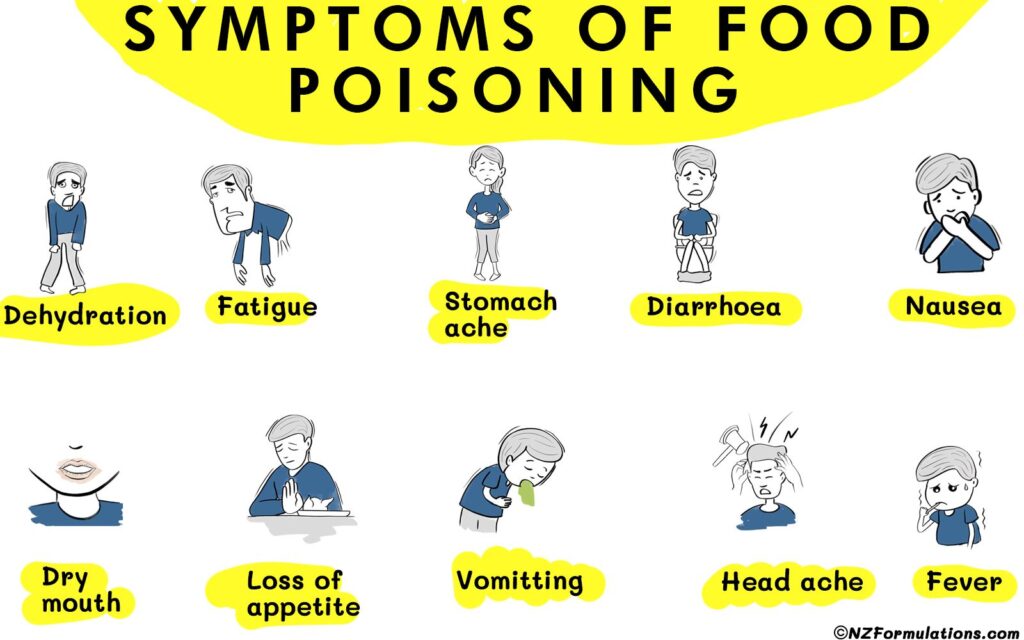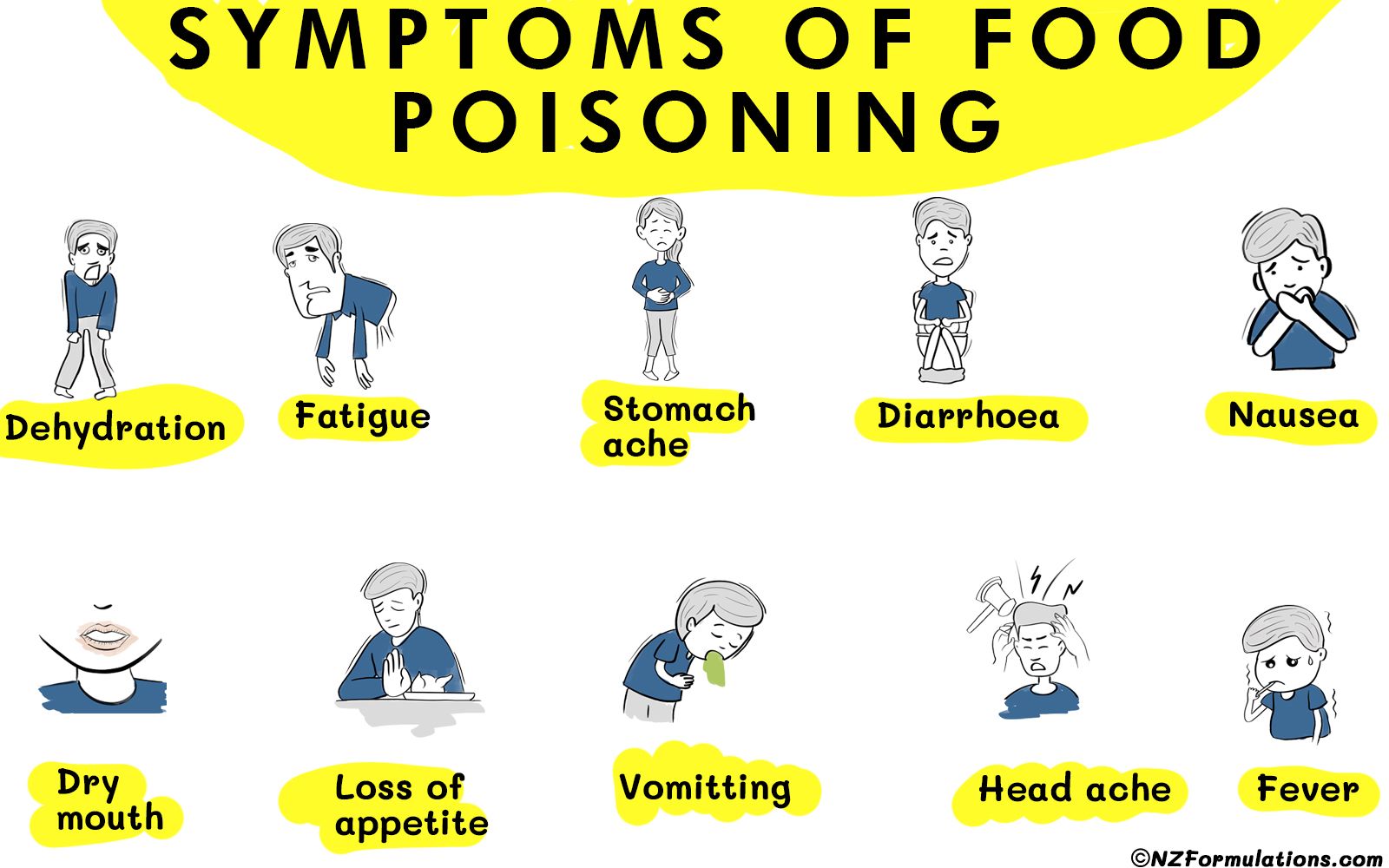
Food Poisoning While Breastfeeding: What You Need to Know to Protect Your Baby
Experiencing food poisoning is unpleasant for anyone, but it can be especially concerning for breastfeeding mothers. The immediate worry is often: can I still breastfeed? Is my baby at risk? This comprehensive guide provides expert insights into managing food poisoning while breastfeeding, ensuring the safety and well-being of both mother and child. We’ll explore the causes, symptoms, treatment options, and most importantly, how to continue breastfeeding safely. Our goal is to equip you with the knowledge and confidence to navigate this challenging situation.
Understanding Food Poisoning and Its Causes
Food poisoning, also known as foodborne illness, results from consuming contaminated food or drinks. Contamination can occur at any stage of food production, from farming to processing to preparation. Bacteria, viruses, and parasites are the most common culprits.
Common causes of food poisoning include:
- Bacteria: Salmonella (often found in raw or undercooked eggs and poultry), E. coli (commonly linked to undercooked ground beef and contaminated produce), Campylobacter (often associated with raw or undercooked poultry and unpasteurized milk), and Listeria (can grow in refrigerated, ready-to-eat foods).
- Viruses: Norovirus (highly contagious and often spread through contaminated food or surfaces) and Rotavirus (more common in infants and young children but can affect adults).
- Parasites: Giardia (found in contaminated water) and Cryptosporidium (also found in contaminated water).
- Toxins: Produced by bacteria in food, even if the bacteria are no longer present. Examples include toxins produced by Staphylococcus aureus.
It’s crucial to note that food poisoning isn’t always caused by “bad” food in the sense of spoiled food. Sometimes, even seemingly fresh food can be contaminated. Proper food handling, cooking, and storage are essential to prevent food poisoning.
Is Breast Milk Affected by Food Poisoning?
This is the primary concern for breastfeeding mothers. The good news is that, in most cases, food poisoning itself is not directly transmitted through breast milk. Your body’s immune system responds to the infection, and the antibodies produced can even be passed to your baby through breast milk, offering some protection. However, dehydration and related complications from food poisoning can indirectly impact breastfeeding.
While the pathogens causing food poisoning rarely pass into breast milk, toxins produced by certain bacteria (like Staphylococcus aureus) might, in very small amounts. These amounts are generally considered insignificant and unlikely to harm the baby. The bigger risk is the mother’s overall health and ability to breastfeed effectively when she’s ill.
Symptoms of Food Poisoning
Symptoms of food poisoning can vary depending on the type of contaminant, but common signs include:
- Nausea
- Vomiting
- Diarrhea
- Abdominal cramps
- Fever
- Headache
- Muscle aches
Symptoms can appear within a few hours of consuming contaminated food or may take several days to develop. It’s important to monitor your symptoms and seek medical advice if they are severe or persistent.
Treating Food Poisoning While Breastfeeding
The primary focus of treating food poisoning is to prevent dehydration and allow your body to recover. Here’s a breakdown of recommended steps:
- Hydration: This is the most crucial aspect. Drink plenty of clear fluids, such as water, electrolyte solutions (Pedialyte, Gatorade), and herbal teas. Avoid sugary drinks, as they can worsen diarrhea.
- Rest: Get as much rest as possible to allow your body to heal.
- Diet: Start with bland, easily digestible foods like toast, crackers, bananas, and rice. Avoid fatty, fried, or spicy foods, as they can irritate your digestive system.
- Medications: Over-the-counter medications for diarrhea or nausea should be used with caution while breastfeeding. Always consult your doctor or pharmacist before taking any medication. Some anti-diarrheal medications are not recommended for breastfeeding mothers.
- Medical Attention: Seek medical attention if you experience any of the following:
- High fever (over 101°F or 38.3°C)
- Severe abdominal pain
- Bloody diarrhea
- Signs of dehydration (decreased urination, dizziness, extreme thirst)
- Neurological symptoms (blurred vision, muscle weakness, difficulty speaking)
Maintaining Breastfeeding During Food Poisoning
Continuing to breastfeed is generally safe and encouraged during food poisoning. Here’s how to manage breastfeeding while you recover:
- Stay Hydrated: Ensure you’re drinking enough fluids to maintain your milk supply. Dehydration can significantly reduce milk production.
- Frequent Breastfeeding: Continue breastfeeding on demand to keep your baby nourished and maintain your milk supply.
- Hygiene: Practice meticulous hygiene to prevent the spread of any potential infection. Wash your hands thoroughly with soap and water before breastfeeding or handling your baby.
- Consider Pumping: If you’re too weak to breastfeed directly, pump your breast milk and have someone else feed your baby. This will also help maintain your milk supply.
- Monitor Your Baby: Watch for any signs of illness in your baby, such as fever, vomiting, or diarrhea. Consult your pediatrician if you have any concerns.
Expert Insights on Breastfeeding and Food Safety
Dr. Emily Carter, a leading lactation consultant, emphasizes the importance of maintaining hydration and hygiene. “Mothers often worry about passing the infection to their baby, but the risk is minimal. The benefits of breastfeeding, including the transfer of antibodies, far outweigh the potential risks. Focus on staying hydrated and practicing good hygiene.”
According to a 2024 report by the Academy of Breastfeeding Medicine, “There is no evidence to suggest that common foodborne illnesses are transmitted through breast milk. Breastfeeding should continue unless the mother is severely ill and unable to care for her baby.”
Preventing Food Poisoning: Essential Tips for Breastfeeding Mothers
Prevention is always better than cure. Here are some essential tips to prevent food poisoning:
- Wash Your Hands: Wash your hands thoroughly with soap and water before preparing food, eating, and after using the restroom.
- Cook Food Thoroughly: Cook meat, poultry, and eggs to the recommended internal temperatures to kill harmful bacteria. Use a food thermometer to ensure accuracy.
- Avoid Raw or Undercooked Foods: Avoid consuming raw or undercooked meat, poultry, seafood, and eggs.
- Wash Fruits and Vegetables: Wash all fruits and vegetables thoroughly under running water, even if you plan to peel them.
- Store Food Properly: Refrigerate perishable foods promptly and store them at the correct temperature (below 40°F or 4°C).
- Avoid Cross-Contamination: Use separate cutting boards and utensils for raw meat, poultry, and seafood to prevent cross-contamination.
- Be Cautious When Eating Out: Choose reputable restaurants and be mindful of food safety practices.
- Drink Safe Water: If you’re unsure about the safety of your water source, boil it or use a water filter.
The Role of Electrolyte Solutions in Recovery
Electrolyte solutions like Pedialyte and Gatorade can be beneficial during food poisoning, especially if you’re experiencing vomiting or diarrhea. These solutions help replenish electrolytes lost through these symptoms, preventing dehydration and promoting faster recovery. However, it’s important to choose electrolyte solutions that are low in sugar, as high sugar content can worsen diarrhea. Water with a pinch of salt and sugar can also be a simple homemade electrolyte solution.
Recognizing and Addressing Dehydration
Dehydration is a serious concern during food poisoning, especially for breastfeeding mothers. Recognizing the signs of dehydration is crucial for prompt intervention. Symptoms of dehydration include:
- Decreased urination
- Dark-colored urine
- Dizziness or lightheadedness
- Extreme thirst
- Dry mouth and skin
- Fatigue
If you suspect you’re dehydrated, increase your fluid intake immediately and seek medical attention if your symptoms are severe. Intravenous (IV) fluids may be necessary in cases of severe dehydration.
Food Safety Certifications and Their Importance
When choosing food products, look for certifications that indicate adherence to food safety standards. Certifications like HACCP (Hazard Analysis and Critical Control Points) and ISO 22000 demonstrate that the manufacturer has implemented rigorous food safety management systems. These certifications can provide an extra layer of assurance that the food you’re consuming is safe.
Navigating Food Poisoning: Key Takeaways for Breastfeeding Moms
Experiencing food poisoning while breastfeeding can be a stressful experience, but remember that it’s usually safe to continue breastfeeding. Focus on staying hydrated, practicing good hygiene, and monitoring your symptoms and your baby’s health. Consult your doctor or a lactation consultant if you have any concerns. By taking these precautions, you can protect both yourself and your baby during this challenging time. Share your experiences and tips in the comments below to support other breastfeeding mothers.

